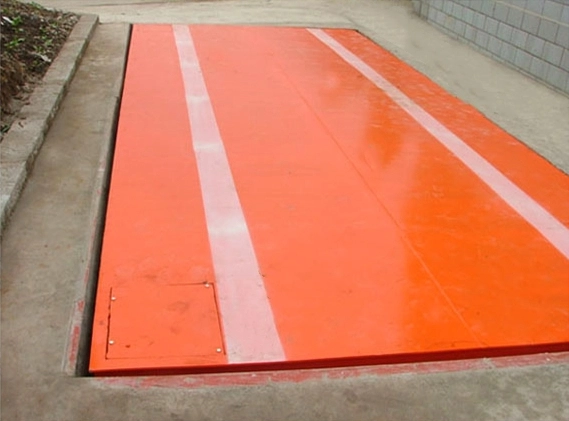Using Accurate Vehicle Weighing Systems: Benefits and Types
Accurate vehicle weighing systems are critical in various industries, ensuring efficiency, safety, and compliance with legal standards. These systems offer numerous advantages, from optimizing load management to reducing operational costs. Here we will talk about the main advantage of using accurate vehicle weighing systems.
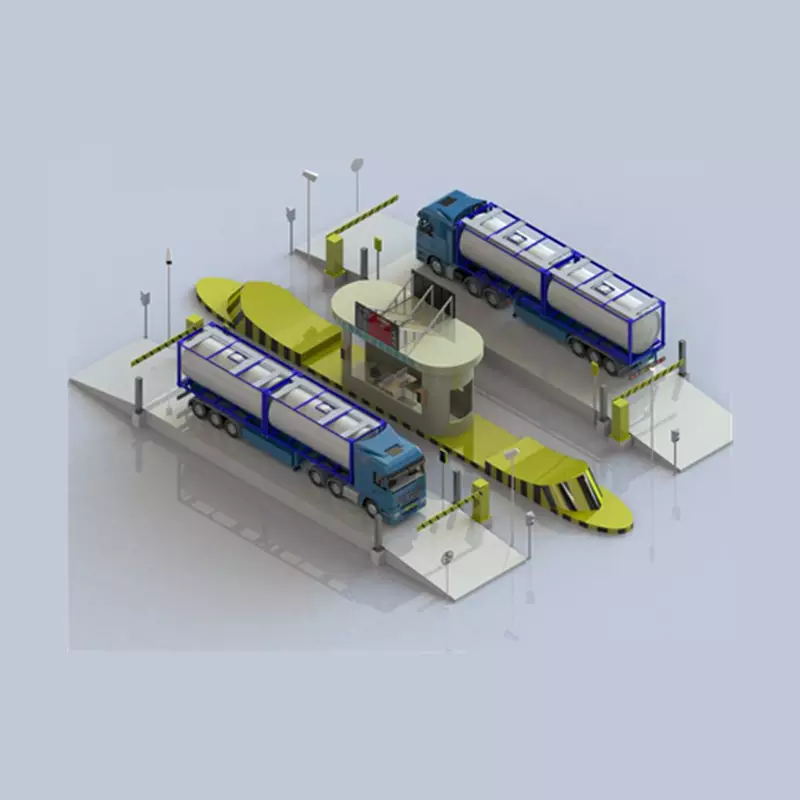
Benefits of Accurate Vehicle Weighing Systems
1. Precision in Load Management
Accurate vehicle weighing systems allow for precise load management, which is crucial for optimizing vehicle performance and resource utilization.
Fuel Efficiency: When vehicles are loaded to their optimal capacity, they consume less fuel. Overloaded vehicles require more energy to move, leading to higher fuel consumption and increased operational costs. By ensuring vehicles carry only what they are designed to handle, businesses can significantly reduce fuel expenses.
Operational Efficiency: Accurate load measurement prevents both underloading and overloading. Underloaded vehicles mean wasted trips, while overloaded vehicles can lead to mechanical strain and potential breakdowns. Efficient load management ensures vehicles are used to their full potential without exceeding their limits, thereby enhancing overall productivity.
2.Enhanced Safety Measures
Safety is a paramount concern in vehicle operations. Proper weight distribution and adherence to weight limits play a crucial role in maintaining vehicle safety.
Improved Maneuverability: Vehicles with balanced loads are easier to control and maneuver. Overloading or uneven loading can make vehicles difficult to handle, increasing the risk of accidents, especially in emergency situations.
Brake System Reliability: Overloaded vehicles place undue stress on braking systems, which can lead to brake failure. Accurate weighing ensures that vehicles are loaded within safe limits, maintaining the integrity and reliability of braking systems.
3.Compliance with Legal Standards
Compliance with legal weight limits is a critical aspect of fleet management. Accurate vehicle weighing systems ensure that vehicles meet these requirements, avoiding legal and financial repercussions.
Avoiding Fines and Penalties: Many jurisdictions impose strict weight limits on vehicles to protect infrastructure and ensure road safety. Overloaded vehicles can lead to significant fines and penalties. By using accurate weighing systems, businesses can avoid these financial burdens.
Preventing Legal Issues: Regularly overloading vehicles can lead to more severe legal consequences, including business shutdowns or legal actions. Ensuring compliance through accurate weighing protects businesses from such risks.
4.Environmental Impact and Sustainability
Accurate vehicle weighing systems provide substantial environmental benefits, supporting contemporary sustainability objectives.
Reduced Carbon Emissions: Vehicles that are optimally loaded consume less fuel, which leads to lower carbon emissions. This decrease in greenhouse gases helps businesses reduce their environmental footprint and supports global initiatives to combat climate change.
Supporting Sustainability Goals: Many companies are dedicated to sustainability. Accurate vehicle weighing systems assist these businesses in meeting their environmental targets by promoting efficient resource use and minimizing waste. This dedication to sustainability can improve a company’s reputation and attract environmentally conscious consumers
5.Financial Savings Across the Board
Overloaded vehicles are a financial burden for businesses and governments. They not only risk hefty fines for non-compliance with weight regulations but also accelerate wear and tear on the vehicle itself, leading to higher maintenance costs and a shorter lifespan for trucks. Additionally, overloaded vehicles consume more fuel, increasing operating expenses.
Accurate weighing systems prevent these issues, saving companies money on repairs, replacements, fuel costs, and potential legal repercussions. By optimizing load distribution, fuel efficiency is maximized, leading to significant cost reductions for transportation businesses.
Types of Vehicle Weighing Systems
Vehicle weighing systems are designed to meet the diverse needs of different industries and applications. Below, we explore the primary types of vehicle weighing systems: static weighing systems, dynamic weighing systems, and portable weighing systems.
Static Weighing Systems
Static weighing systems measure the weight of vehicles when they are stationary. The main types of static weighing systems include:
- Weighbridges: Weighbridges are large, robust scales designed to weigh heavy vehicles such as trucks, buses, and trailers. They are typically installed at ground level or in a pit and can measure the total weight of a vehicle, including its load. Weighbridges are widely used in industries such as logistics, mining, and construction for accurate load measurements.
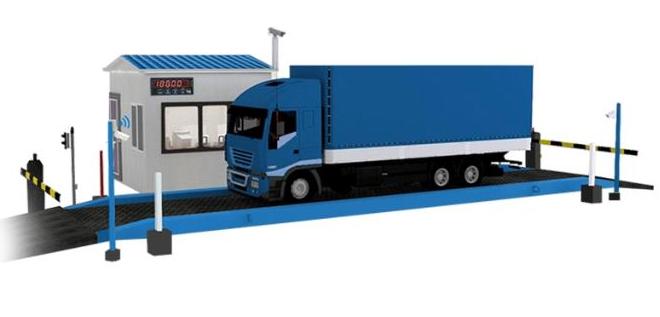
- Platform Scales: Platform scales are similar to weighbridges but are generally smaller and designed for lighter vehicles or specific parts of a vehicle, such as individual axles or wheels. These scales are often used in warehouses, manufacturing plants, and agricultural settings to measure the weight of goods loaded onto smaller vehicles.
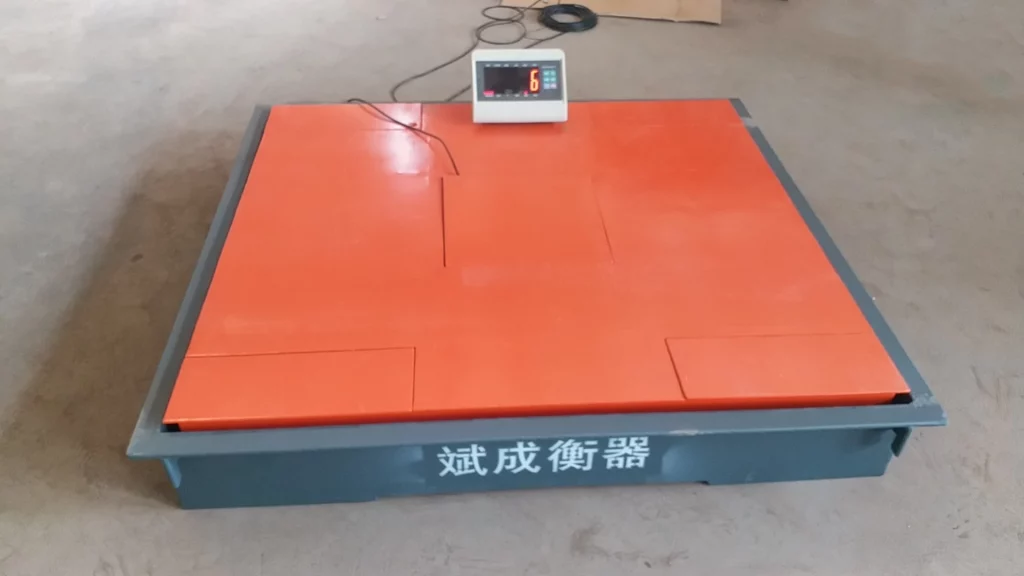
- Axle Scales: Axle scales are used to measure the weight of individual axles on a vehicle. These scales are crucial for ensuring proper weight distribution and compliance with axle load regulations. Axle scales are commonly used at weigh stations and by transportation authorities for vehicle inspections.
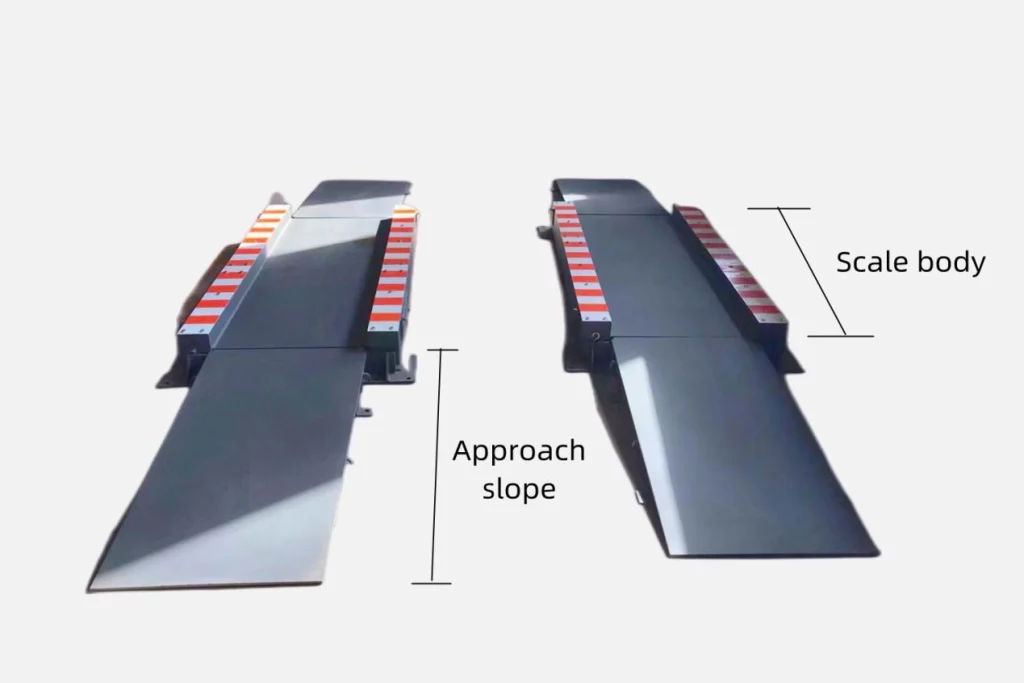
Dynamic Weighing Systems
Dynamic weighing systems, also known as weigh-in-motion (WIM) systems, measure the weight of vehicles while they are in motion. These systems are designed to handle high-traffic areas and provide quick and accurate weight measurements without requiring vehicles to stop. Key types of dynamic weighing systems include:
- Weigh-in-Motion (WIM) Systems: WIM systems are embedded in roadways and weigh vehicles as they drive over the sensors. These systems use advanced technology to measure the weight, speed, and axle configuration of vehicles in real-time. WIM systems are commonly used on highways and at toll plazas to monitor and enforce weight limits, improve traffic flow, and collect data for transportation planning.
- Onboard Weighing Systems: Onboard weighing systems are installed directly on vehicles and provide real-time weight data during transit. These systems use sensors mounted on the vehicle’s suspension or axles to measure the load. Onboard weighing systems are especially useful for industries such as waste management, construction, and agriculture, where vehicles frequently load and unload materials at different locations.
- Bridge Weighing Systems: Bridge weighing systems are a specialized form of WIM used to monitor the weight of vehicles passing over bridges. These systems help ensure that bridges are not subjected to loads that exceed their design limits, contributing to the safety and longevity of the infrastructure.
Portable Weighing Systems
Portable weighing systems provide flexibility and mobility, making them ideal for temporary or remote locations. These systems are easy to transport, set up, and use, offering accurate weight measurements wherever needed. The main types of portable weighing systems include:
- Portable Axle Scales: Lightweight and easy to set up on any flat surface, portable axle scales are designed to measure the weight of individual axles. They are commonly used in field operations, temporary construction sites, and agricultural settings. These scales are advantageous for applications requiring mobility and versatility.
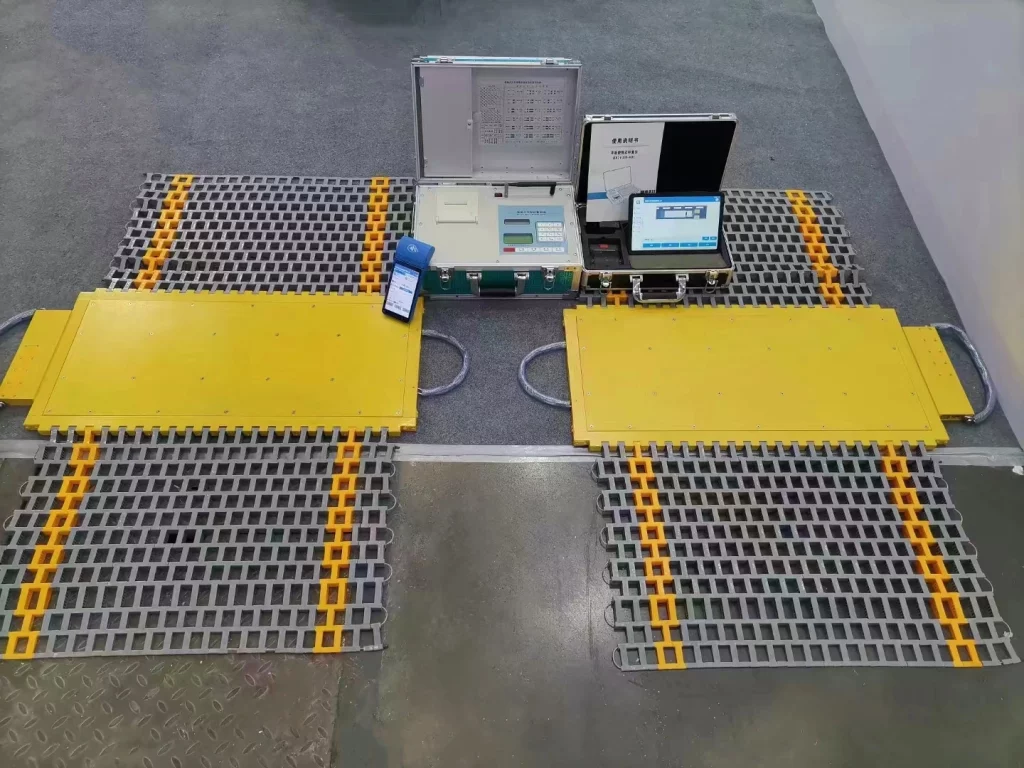
- Portable Wheel Load Scales: Compact and designed to measure the weight of individual wheels or wheel groups, portable wheel load scales are utilized in various industries such as aviation, logistics, and military operations. Precise weight measurements are crucial for safety and efficiency in these fields. These scales are easy to transport and can be deployed in diverse environments.
- Portable Weigh Pads: Highly adaptable, portable weigh pads can be placed under vehicle wheels to measure weight. They are suitable for weighing vehicles of different sizes and configurations, making them ideal for temporary weigh stations, roadside inspections, and agricultural applications.
Conclusion
By using an accurate vehicle weighing system, you can achieve many of the benefits mentioned above. To choose a product type that meets your needs and learn more, please contact us. BINCEN provides all types of vehicle weighing systems and can customize products according to your needs. We are looking forward to becoming your partner!




